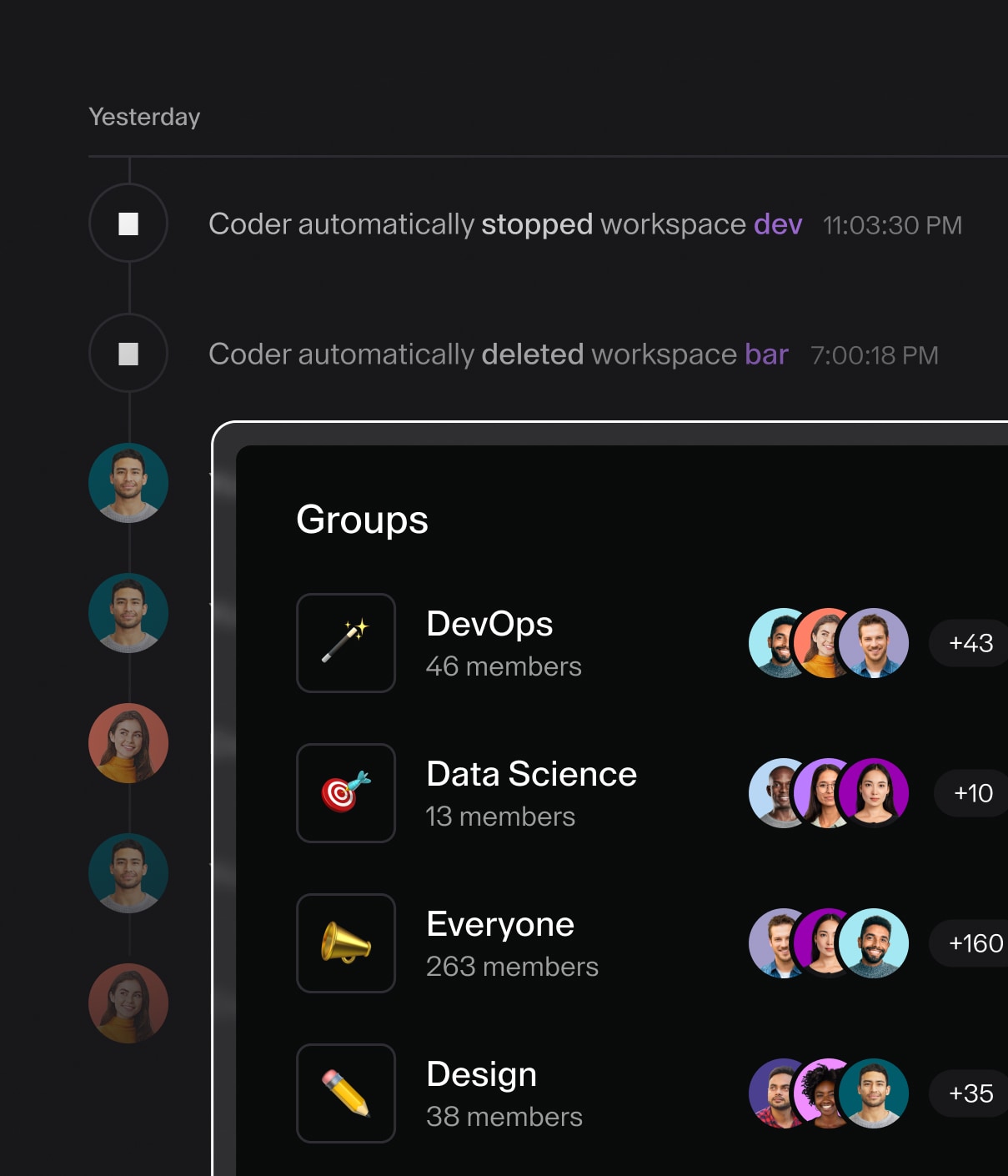Reference
Automation
All actions possible through the Coder dashboard can also be automated. There are several ways to extend/automate Coder:
Quickstart
Generate a token on your Coder deployment by visiting:
https://coder.example.com/settings/tokens
List your workspaces
# CLI
coder ls \
--url https://coder.example.com \
--token <your-token> \
--output json
# REST API (with curl)
curl https://coder.example.com/api/v2/workspaces?q=owner:me \
-H "Coder-Session-Token: <your-token>"
Documentation
We publish an API reference in our documentation. You can also enable a Swagger endpoint on your Coder deployment.
Use cases
We strive to keep the following use cases up to date, but please note that changes to API queries and routes can occur. For the most recent queries and payloads, we recommend checking the relevant documentation.
Users & Groups
Templates
- Manage templates via Terraform or CLI: Store all templates in git and update them in CI/CD pipelines.
Workspace agents
Workspace agents have a special token that can send logs, metrics, and workspace activity.
-
Custom workspace logs: Expose messages prior to the Coder init script running (e.g. pulling image, VM starting, restoring snapshot). coder-logstream-kube uses this to show Kubernetes events, such as image pulls or ResourceQuota restrictions.
curl -X PATCH https://coder.example.com/api/v2/workspaceagents/me/logs \ -H "Coder-Session-Token: $CODER_AGENT_TOKEN" \ -d "{ \"logs\": [ { \"created_at\": \"$(date -u +'%Y-%m-%dT%H:%M:%SZ')\", \"level\": \"info\", \"output\": \"Restoring workspace from snapshot: 05%...\" } ] }" -
Manually send workspace activity: Keep a workspace "active," even if there is not an open connection (e.g. for a long-running machine learning job).
#!/bin/bash # Send workspace activity as long as the job is still running while true do if pgrep -f "my_training_script.py" > /dev/null then curl -X PUT "https://coder.example.com/api/v2/workspaces/$WORKSPACE_ID/extend" \ -H "Coder-Session-Token: $CODER_AGENT_TOKEN" \ -d '{ "deadline": "2019-08-24T14:15:22Z" }' # Sleep for 30 minutes (1800 seconds) if the job is running sleep 1800 else # Sleep for 1 minute (60 seconds) if the job is not running sleep 60 fi done


